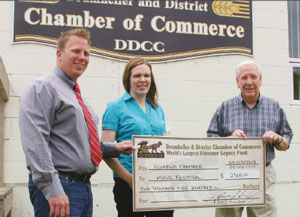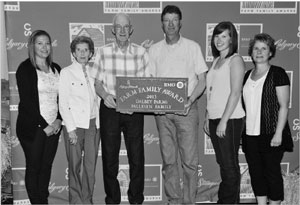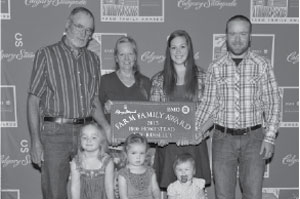The Hamlet of Rosebud has become a leading example of rural Alberta celebrating the arts.
This summer it is leaping ahead again introducing the Rosebud Chamber Music Festival (RCMF).
The Festival is slated from July 29-August 4, and will feature performances in Rosebud, Drumheller and Three Hills.
Rosebud native Keith Hamm has been named artistic director of the Festival. At just 22, he was named Principal Violist of the Canadian Opera Company Orchestra.
“RCMF is a grassroots project committed to bringing world class musical performance to rural communities in the Canadian Badlands. The mission of RCMF is to showcase international performers in concerts, education and outreach programs. Our spectacular artist lineup includes some of Canada’s finest young chamber musicians,” said Hamm. “I am thrilled to welcome them to Rosebud, Alberta, the artistic heart of the Canadian Badlands.”
This week the Drumheller and District Chamber of Commerce has stepped up its support for the Festival with a $2,500 donation.
“We always want to support local businesses in the valley and the community, and we feel a good tie-in in because it is going to bring people in from out of town that may not come tor Drumheller for other reasons,” said Chamber president Jon Shoff. “It is something that is unique and new and worth trying out, and hopefully it becomes and annual event.
LaVerne Erickson, one of the organizers of the event, says this is a long time coming. For years, he has envisioned international artists coming to the badland for years to promote cultural tourism.
“The artists are people that you find on the concert stages anywhere in the world,” said Erickson.

(l-r) Drumheller and District Chamber of Commerce president John Shoff and Chamber manager Heather Bitz present LaVerne Erickson with a donation of $2,500 to seed the first Rosebud Chamber Music Festival coming this summer.
The festival promises to kick off its premiere season with an ensemble of players with astonishing reputations in the Canadian classical music community.
Pianist Peter Longworth, a professor at Toronto’s Glenn Gould School, will be featured. Also on the bill are violinists Aaron Schwebel and Sheila Jaffé, two of Canada’s most outstanding young violinists currently performing around the world.
A sensational feature of the festival is the appearance of the Bonjour Stradivarius Cello that will be played by cellist and Calgary native, Arnold Choi. The instrument is on loan from the Canada Council for the Arts and is valued at $11 million.
Included in the RCMF lineup are performances at Knox United in Drumheller on August 1, Prairie Atrium, Three Hills on August 2, and the Rosebud Church on August 4.
Another event included in the festival is a classical music Reading Party at the Rosebud Mercantile, hosted by the Rosebud Centre for the Arts. This is on July 31 is a chance for artists to get acquainted with members of the local community.





























